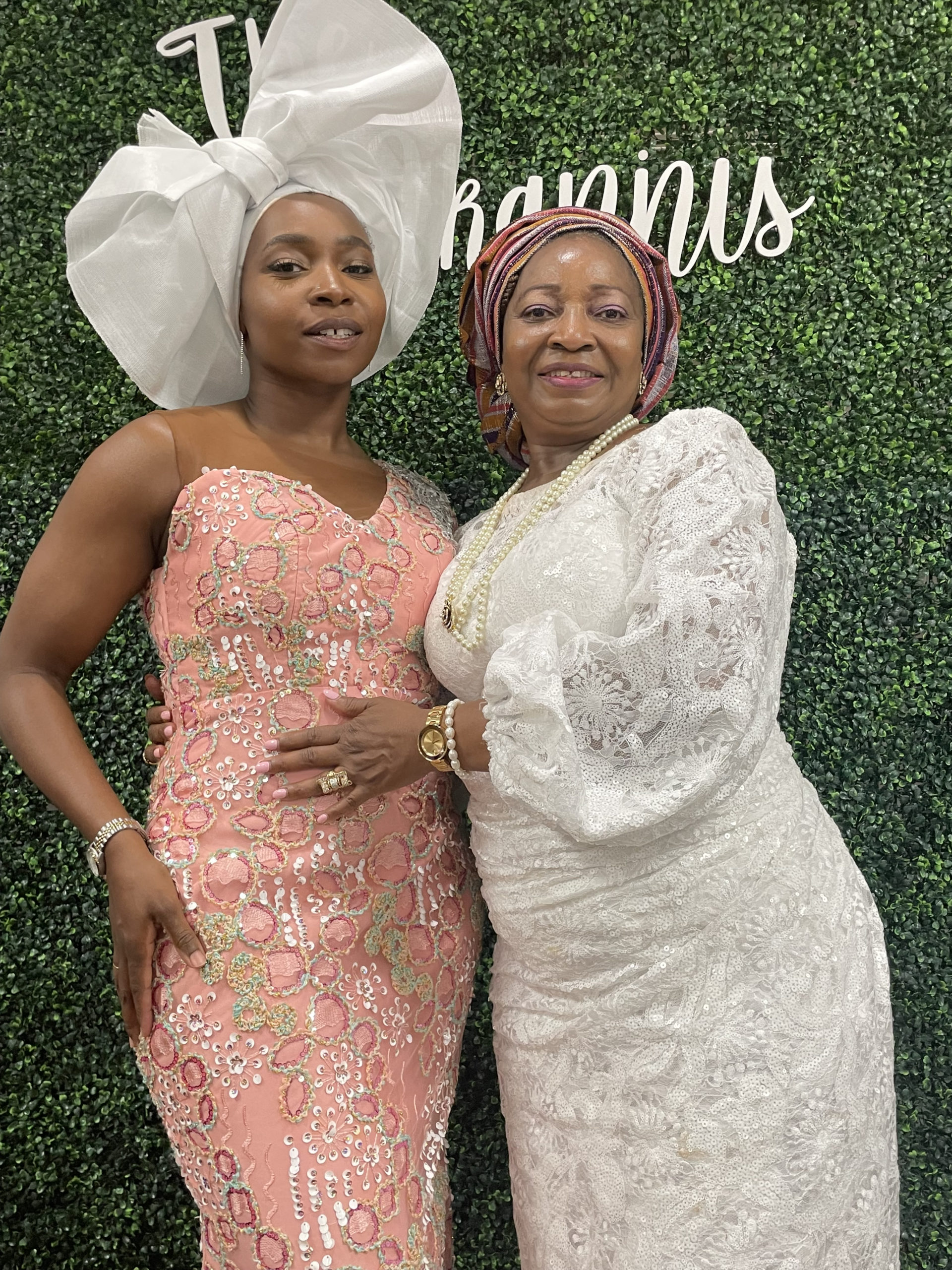founder story
Hey there. My name is Abiola Akanni, I’m a Nigerian-American yoga educator and founder of iya.

mum & me
Iya means mother in Yoruba, my native language in Nigeria. Growing up in a traditional Nigerian household, my mum was a disciplinarian. It was how she loved us. It was a hard love that sometimes led you to perform, however it was my dharma to receive what she gave to expand it.
The practice of yoga found me over 12 years ago, during a time where I was processing through my hypersensitivity and anxiety, and had little education around my neurodivergent nature. I struggled with affirming myself and fitting in with both Black and white folks. As a result, I grew up hypercritical and focused on perfectionism which led me to perform in spaces I didn’t feel I belonged in to numb feelings of isolation.
Not only did yoga nurture me through these beliefs, it offered an approachable science to re-mother my body and discharge the trauma I held in my subconscious. From there, the philosophy offered tools to support the new beliefs taking shape in my life and body.
I’m thankful to have a career as a yoga educator, and the opportunities I’ve had to create and teach on major yoga platforms. However, during these times, the yoga that was reinforced in western culture was always performative. It focused on what the practice looked like in athletic bodies, as opposed to what it feels like in different bodies. This fed into beliefs of perfectionism, ableism and western standards of beauty that left me performing on and off my mat. As a result, I always felt like a caricature of myself when teaching in these spaces.
When the pandemic hit, the whole world stopped! No one was concerned about acrobatic yoga poses. People, including myself, simply wanted to feel safe, settled and seen in their bodies without having to be more of something. I created the term non-performative yoga from this desire to stop trying to fit into the western world’s view of how I needed to show up as a Black woman, let alone a yogi, and instead give myself permission to start being.
This inspired me to create iya. We offer the practice beyond the poses for changemakers and space holders looking to learn the many facets of yoga. We provide education on the practice as a whole, as opposed to the western world’s focus on yoga and the physical body. At iya, I’m continuously learning how to stop trying and start being through the embodiment practices of yoga.